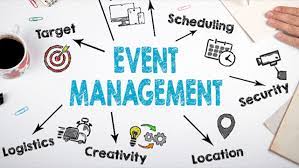Event planning can be a lot of fun, but it’s not always easy. You have to make sure that everything goes smoothly and that your audience has a great time. This guide will help you think through the steps involved in planning an event, so you don’t miss anything important.
Start With a Clear Focus
The first step in planning a successful event is to start with a clear focus. You need to know what you want your event to achieve and how it will achieve that. This can be challenging because there’s so much going on in the world today, but if you break down the big picture into smaller pieces, it becomes easier to see what pieces are missing from your plan.
The first thing I recommend doing is making sure that everyone involved understands their role in helping achieve those goals and weaves them into their daily workflows. The next step is figuring out exactly what those goals are: What do we want our audience members/attendees/guests/vendors etc., who comes through these doors during this time period (from now until forever), to walk away with? How will they feel when they leave? What action do we want them to take when they leave? Then once those pieces are figured out, focus on communicating them clearly through messaging at each point of interaction throughout the entire process–from registration through check-out after an event has taken place; whether via email campaigns or social media posts or both!
Know Your Audience
One of the most important things to do when planning an event is to know your audience. If you don’t understand who will be attending, how they will benefit from the event and what they want from it, then it’s unlikely that your event will be as successful as possible.
When planning your event:
- Understand their needs – who are they? What do they want from this experience? What are their pain points and frustrations with current offerings?
- Know what they want from this experience – what value can my product deliver at this point in time (and why)? Who else offers similar products/services/experiences and how does mine compare in terms of quality/price/etc.. How can I better communicate this value proposition through various channels such as email marketing & social media campaigns beforehand so everyone knows exactly what type of experience awaits them once inside our doors!
Find the Right Venue
When choosing a venue, it is important to consider the following:
- Location – The location of your event should be in close proximity to where your target audience is likely to be at the time of day or night when your event is taking place. For example, if you’re hosting an outdoor concert on Friday night and most people are out of town on vacation during that time period, then it may not be as effective as an indoor venue where they could attend any time throughout the year.
- Suitability – In addition to being in close proximity to where people live and work, venues should also offer amenities that align with your brand identity so attendees feel comfortable at all times during their experience there (e.g., food options). If possible try looking for venues that offer entertainment such as live music or comedy shows so guests don’t get bored waiting around between sessions/speakers etcetera.”
Promote it Well in Advance
The best way to ensure that your event is a success is by promoting it well in advance.
- Don’t wait until the last minute! You want to make sure that your guests know what to expect, so put some thought into how you’ll let people know about your upcoming event.
- Think about how you can reach your target audience and then use social media, email marketing and more (like posters on campus or posters at local businesses) as ways of spreading the word about what’s coming up at your school or company.
Use a Reliable Event Management Platform
A reliable event management platform by Eventtia is essential to planning and executing your event. The right tool will help you manage all aspects of your event, including:
- Planning and budgeting
- Guest registration and attendee management (including mobile apps)
- Event marketing and promotion
- Social media integration (such as Facebook events)
You want to choose a platform that has all these functions built-in so you don’t have to spend time trying to integrate them later on. But which one should it be? There are many options out there, but it’s important not just to look at features but also how they work in practice–and whether or not they have been tried-and-true by other organizations before yours!
Choose the Right Food and Drink
When it comes to planning a successful event, the food and drink you offer can be just as important as the venue itself. You’ll want to choose options that are appropriate for your attendees and make sure they have plenty of options.
When deciding on what kind of food or drink to serve, think about what your audience will expect from an event like yours. If this is an annual conference for a particular industry or community, then people will likely know what types of foods are associated with such gatherings–for example, if the conference attendees are all in healthcare professions then having healthy options available would be ideal; whereas if this were a networking event between entrepreneurs looking for funding opportunities then offering more decadent dishes might be better suited.
In addition to making sure there’s enough variety available so everyone gets something they’re interested in eating (or drinking), don’t forget about portion size! If there aren’t enough options available then no one gets anything at all; however if there are too many choices then some people may end up wasting money while others go home hungry because they weren’t able find anything worth buying either due simply because there weren’t enough vendors selling only small portions like those needed by one person per day/weekend away from home without refrigeration facilities nearby.”
Know What to Expect from Your Key Vendors
Before you begin planning your event, it’s important to know what to expect from your key vendors. You want to be able to trust that they’ll deliver on their promises, so it’s important that they have a track record of doing so in the past.
- What are their strengths?
- Are there any weaknesses in their service or products?
- What are their limitations (e.g., does this particular vendor only offer one type of food or drink)?
- Are there any capabilities that would benefit your event (e.g., does this caterer have an extensive menu available for vegetarians)?
Knowing these things will help ensure that you get exactly what you want when it comes time for planning and executing an event!
It’s Always a Good Idea to Plan Ahead for Your Event
Planning ahead is always a good idea. It helps you to ensure that your event is a success, and it can save you money in the long run. Planning ahead also helps keep problems at bay, ensuring a positive experience for all involved in an event.
Planning ahead gives you more time to focus on what matters: making sure that everything goes smoothly on the day of your function or celebration!
Conclusion
We hope that these event management tips will help you plan your next successful event. Remember to start with a clear focus, know your audience and find the right venue, promote it well in advance (and use the right tools), choose the right food and drink options, know what to expect from your key vendors (including security), and finally use a reliable event management platform.





Be First to Comment